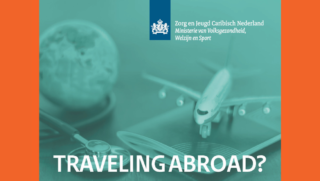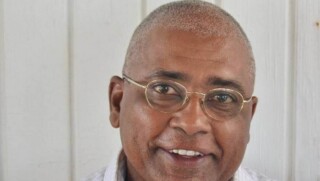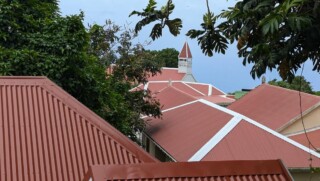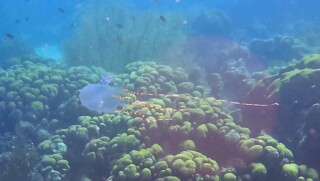For many Dutch, Bonaireans don’t really exist
By Adnan Hassan
Founder, Bonaire Future Forum
—————————————
Introduction
Why is poverty on Bonaire ignored? And what should we do about it? Why is there little Dutch public support for solving poverty on Bonaire, a “Special Municipality” of the Kingdom of the Netherlands? The reason: for many Dutch, Bonaireans don’t really exist.
The Dutch are generous
The Dutch are generous when it comes to helping the poor around the world. The Netherlands is the ninth-largest donor country on the Organization for Economic Cooperation and Development’s (OECD’s) Development Assistance Committee (DAC), spending US$5.3 billion on official development assistance (ODA) in 2021 alone.
Individually, the Dutch are also generous when it comes to providing funds for crises abroad. In one report, 88% of Dutch households gave to charitable organizations.
At the same time, the Dutch maintain a high standard of living having the fifth lowest poverty rate in the world at around only 7% by the end of 2020.
But poverty on Bonaire is real
Poverty is real on Bonaire. Like in so-called 3rd world impoverished countries — some people on Bonaire, live without electricity, water, a shower, or a toilet. We know this, and it is reported in a recent “Follow the Money” article. Sadly, some Bonaireans poop outside in the bushes and pee in a bowl and then throw it away. Some diabetics, with pain in their feet, walk to the community center every morning for free food and drink; some children do not have enough to eat and go to school hungry; and otherwise, there is suffering.
The horror is unbelievable.
Solving it is not impossible
Solving poverty on Bonaire is not impossible. After all, we are not talking about millions of people who have to be taken out of poverty. We are talking about 8,000 “fellow Dutch citizens.” It would take, say 0.001% or some minuscule portion of the Dutch national budget to solve.
This can’t be about the ability to pay. It has to be more than that.
Why don’t we just do it?
What could be stopping a solution? Why does the national government not just put this issue behind it? Why do the fellow citizens in the Dutch national public not scream about solving this, even as they offer help to other suffering communities? Why not take care of their own?
Bonaireans don’t really exist
To comprehend the failure of support at the national level for addressing poverty on Bonaire, we need to look at a few harsh realities, one of which is that Bonaireans don’t really exist for the Dutch public.
There is little meaningful support at the national level for taking action against poverty on Bonaire. Powerful voices don’t speak for us, and if they do, there is scant support. When the average Dutch politician or bureaucrat advocates for Bonaire, s/he does it with little support or awareness from the general Dutch public on these issues. Given our small size, important parties don’t get enough votes from our “Special Municipality,” making us an uninteresting ‘side story.’
The average Dutch citizen knows little about us. For them, Bonaire is part of a general area called the “Caribbean,” not even a distinct island, with its own identity. For most Dutch — heck, most of the world — there is little understanding of terms like “European Netherlands” versus “Caribbean Netherlands.”
When was the last time you met someone in Europe (who has not traveled to the Caribbean) who refers to themselves as a European Nederlander?! For them (and most of the world) the Dutch live in the Netherlands, and there is only one Netherlands — the one in Europe. Sure, the Caribbean “others” carry a Dutch passport. But they are not really Dutch in the cultural sense. They are not “us.” Ironically, many “local” Caribbean Dutch use “Dutch” as a term for ‘white’ and not being “local.” So this nomenclature is not one-sided.
History doesn’t help us. The average Dutch person in European Netherlands still sees the Caribbean Netherlands as the “Antilles” and a legacy of the Veering Oostindische Chomping (VOC) period. With this comes some lingering unpleasant sense of guilt for the colonial exploitation of that era, and, of course, from the horrors of African slavery. Charity that is done in this context is not done with warmth and affection. It is done out of shame and payment for guilt. This is reinforced by the demands to apologize for slavery and to confront the call for reparations.
The Caribbean has a mixed reputation
The reputation of the Caribbean is also a liability. To the Dutch public — and the general world — the Caribbean is seen as a haven for off-shore finance, money laundering, drug trafficking, and, of course, good-times-under-the-sun. This does little to reassure the average Dutch person that funds sent to the Caribbean will be well spent — even if all the controversial activities require two hands to clap, one likely to be European.
Politicians and bureaucrats are nervous about reputational liability. The problem is so severe that Dutch politicians and bureaucrats who mean well, are afraid that they will be accused of being on tax-paid holiday junkets even when they are visiting the Caribbean on official business. If they are spending a few extra hours in the Caribbean, the assumption will be that they have a margarita in their hand and a nice tan on their body!
The Culture Clash
There is also a culture clash between the Dutch Calvinist work ethic and the Caribbean laid back sensibilities. This also sits in the background. There is a Protestant sense that people should work hard and not be indolent. This spirit is characterized by a tendency towards hard work, a striving for profit, and sobriety. Work is a calling, and achievement and thrift are signs of a good Christian life.
This preference for hard work creates hesitancy to just pay the poverty away. Handing out money, especially to so-called “lazy folks from the Caribbean,” (even if they work 2-3 jobs to make ends meet!) is seen as a symbol of dependency that does not solve systemic poverty. To many Dutch, there must be other ways to create independence and self-sufficiency.
Structural Challenges
There is a structural problem underlying the persistent poverty problem on Bonaire. This structure is the result of the peculiar geographical, cultural, and historical nature of the Caribbean and European region’s relationships over the centuries. Ignoring this reality doesn’t seem wise, and just leads to misunderstanding.
What does this all mean for the future?
The Dutch have shown remarkable generosity to others in both official and personal capacities when they see a need. The data clearly states this. But we must come to terms with the reality that in the case of Bonaire, we just don’t exist for the Dutch public. And changing the minds of the Dutch public will take time.
For a 450+-year-old country of nearly 18m people on the other side of the Atlantic, the fate of 22k people on a faraway speck in the Caribbean just isn’t part of the day-to-day concerns. We are 0.12% — that is less than one-tenth of one percent — of the Dutch population. Sure, it may matter to some vocal members of the Tweede Kamer, and maybe to politicians who have come to the Caribbean, and bureaucrats with responsibility for managing relations with the Caribbean Netherlands. But to the general Dutch public, not really. This does NOT make the Dutch “bad people, who want to take us over as a neocolonial project” or “to keep us in poverty so they can steal our assets” or “racists who think less of us,” as some have accused. The ignorance of our reality for the Dutch public is just the fault of structural realities.
Bringing attention to the issue of poverty on Bonaire is going to require time. Suing the national government is likely to be the better short term course to get attention to poverty on Bonaire. But even this takes time. However, if the lawsuit succeeds at least the politicians and bureaucrats can show a court ruling, and explain to the voters that it was a judicial requirement and not their discretion. It is the more efficient way to solve what is a long-standing structural problem even as we try to raise greater awareness of the issue.
Self-Sufficiency has to be the goal
Over the long term, the goal has to be to make Bonaire more self-sufficient. This means having an economy that can support the island, while retaining the identity and soul of the island.
This doesn’t mean becoming independent of the national government. But it means determining our own fate with the help of the national government. This will happen as we develop a better capacity for self-governance and offer a vision for the future of Bonaire that is positive and developed locally. For this, we need a better quality of leadership on Bonaire, in both the public and private sectors. It is slowly happening and needs to be accelerated.
Bonaire must stay committed to self-improvement and solve poverty via smart growth.












